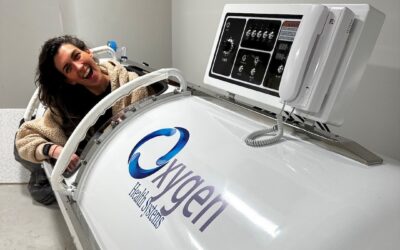The holiday season is coming to a close and a brand new year is upon us. The new year is a perfect time to reflect on the past year and to start creating new goals for the upcoming months. Many people decide to make New Year’s resolutions at this time every year and this might include goals such as; forming healthy habits, losing weight, taking a social media break, or setting new career goals.
Unfortunately, sometimes even with the best intentions, life gets in the way and these resolutions are discarded by February. This can feel very defeating and stressful, especially after an uncertain past two years. Many people are stressed now more than ever, and this can take a major toll on the body.
During periods of high stress, unfavorable changes in the body occur creating inflammation and chronic illness. With this in mind, finding time to slow down and practice self-care is more important than it’s ever been. Self care doesn’t have to be complicated as long as it’s helping you to form a stronger mind-body connection.This new year, prioritize your overall health and emotional well-being and give your nervous system a break with these three simple practices.
Give Mindful Meditation a Try
One of the best ways to form a mind and body connection is through meditation. For thousands of years, meditative deep breathing and focused attention has been used to elicit a positive, psychosomatic response in the body. Today, meditation is a helpful tool used to reduce anxiety and stress commonly associated with the modern day busy lifestyles. As a matter of fact, many studies have shown that meditation can be extremely beneficial for those experiencing chronic conditions such as physical pain and high blood pressure – to name a few. This means that meditation is not just a powerful form of relaxation, but also a form of medicine!
So what does mindful meditation mean? Meditation is a practice of awareness that brings both the mind and emotions to a calm and stable state. Mindfulness is about being fully present and engaged in the moment.This means you not only become more aware of your physical and emotional state but to also accept it without negativity. During mindful meditation, the aim is to separate outside stressors from our current mental state.
Four Steps to Mindful Meditation
- Comfort – There really isn’t a proper meditation position, just as long as you find it comfortable. Many people prefer to meditate in a seated position, either on a chair or on the floor. However, you should choose a position that feels natural and relaxed to you. Some people find more comfort in laying down, kneeling or even standing during meditation.
- Timing – Everyone is busy, and finding the time for mindful meditation can seem like a challenge. However, practicing mindfulness doesn’t need to be approached with an “all-or-nothing” attitude. Just five minutes of mindful meditation per day is enough when you’re just getting started. You can even split up the time in smaller increments during the day. For example, at OWM Dr Kaplan has made a point to incorporate a mindful minute each day for his medical staff. Once a day the staff at OWM collectively take sixty seconds to breathe, tap into the present moment, and recalibrate. It’s really that simple!
- Breathe – By taking deep breaths you are bringing your body to a calm state of mind. This is because during deep breathing exercises your vagus nerve is stimulated which signals your body to slow down, lower both heart rate and blood pressure. Deep breathing also allows your body the ability to lower stress hormones, such as cortisol. Begin with slow, measured breaths with your diaphragm, with one breath every 15 seconds. Slowly breathe out and repeat.
- Notice Your Thoughts – While you are practicing mindful meditation thoughts will come and go, and this is ok. The key is to acknowledge your thoughts, but don’t engage with them. Then, choose to bring your focus back to your breathing and relaxed, meditative state.
Treat Yourself to a Spa Treatment
Let’s face it, when you look better you feel better! Over the last decade the popularity of spa treatments, such as facials, have been increasing and for a good reason. Treatments that were once seen as a luxury or reserved for those suffering from chronic skin conditions, are now being acknowledged for their mind-body healing powers as well. While it’s true that regular facials are a relaxing way to attain a fresh, glowing complexion, there is also evidence that spa treatments have a soothing effect on our psyche too – and it all comes down to touch.
The power of nurturing, human touch is a significant, but often overlooked therapy for stress relief and healing. When we experience pleasant touch through the skin, the body’s largest sensory organ, the vagus nerve is triggered which prompts a variety of physiological responses. The vagus nerve, the longest cranial nerve, is the main nerve affecting the parasympathetic nervous system, which controls our ability to relax. This helps to regulate our heart rate, respiratory rate, digestion and many more internal functions. Some studies suggest that massage, such as facial and Ayurvedic, can lower stress hormones by 30% and increase serotonin by 28%.
Far more than just an indulgent day at the spa, facials and massage can be a way to take care of our nervous system as well.
Get Moving
Last but not least, exercise is one of the most beneficial ways that you can help dissipate the stress response in the body. Physical exertion helps your body to produce endorphins which lower stress levels and promotes relaxation.
You may be thinking that this is easier said than done. There’s a reason why gyms are so crowded in January and a ghost town come March. Many people start the new year with good intention to incorporate exercise into daily life and then get discouraged. The key is to start small and to not overcomplicate things. The form of exercise doesn’t need to be intense or long, but it should be consistent. Even walking just 20 minutes a day can lower stress hormones and increase immunity in the body. Regardless of the type or duration of exercise, the best form of exercise is the one that is manageable with your lifestyle.
Consistency is key!
Dr. Kaplan and the staff at OWM Integrative Wellness wish everyone a safe and healthy New Year with some well-deserved downtime. Remember, stress reduction may be the most important resolution you’ve ever made. Calm your nervous system, and start the year right with these three simple tips. Prioritize YOU as a resolution this year and cheers to a healthy and prosperous 2022!




